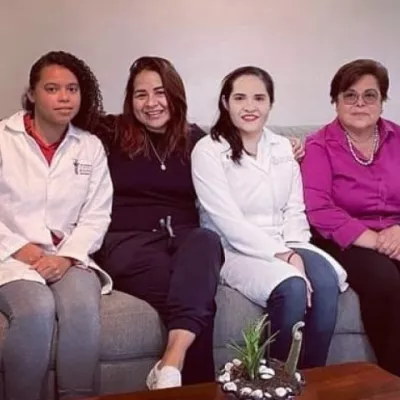
Project description
Hirschsprung disease is a common congenital birth defect leading to bowel obstruction, and it is caused by the absence of enteric nervous ganglion cells in variable portions of the colon. The disease incidence is around 1:5000 live births. The disease’s most feared complication is Hirschsprung-associated enterocolitis (HAEC), resulting in a reduction in quality of life and sometimes death, even in patients receiving surgical treatment. Ruth A. Levitt (2022) concluded through a study HAEC will experience a doubled hospitalization duration and a 2.5-fold increase in treatment costs. There is no effective treatment for HAEC, and early detection is crucial for management. HAEC is intimately linked to the perturbation of the gut microbiome. Previous studies have highlighted the decrease in diversity and overabundance of Enterobacteriaceae (Escherichia coli), Bacteroides fragilis, or Clostridium species in the gut microbiome of patients suffering from HAEC.
This project sets out to address the following objectives:
- To evaluate the gut microbiome changes following surgical treatment for Hirschsprung disease
- To determine the gut microbiome signatures linked with post-operation HAEC
Additionally, through conducting this research project, I also aim to raise awareness (in both Vietnamese patients and clinicians) on the role of gut microbiome in Hirschsprung disease and, more broadly, to other pediatric gastrointestinal syndromes.
1. What is the relationship between your project and Microbiota?
Many studies have shown differences in the gut microbiota between children with and without Hirschsprung's disease-associated enterocolitis (HAEC). Previous studies showed that in children with HAEC, there is an increase in the Bacteroidetes, Firmicutes, and Cyanobacteria groups. On the other hand, in children without a history of HAEC, there is an increase in the Fusobacteria, Actinobacteria, and Proteobacteria groups. The significant changes in HAEC include an increase in the Enterobacteriaceae family and a decrease in short-chain fatty acid-producing bacteria like Bifidobacterium. These studies have primarily been cross-sectional and have not followed patients longitudinally after surgery, so the relationship between HAEC and microbiota has not been fully elucidated. Our research takes a prospective approach to characterize the temporal changes in gut microbiomes of children with and without HAEC following 3 months after surgical treatment. Understanding these changes will greatly contribute to predicting the likelihood of postoperative enterocolitis. Additionally, identifying specific bacterial groups responsible for initiating episodes of enterocolitis would be a basis for effective treatment.
2. How can the project improve Children’s health in Vietnam?
Vietnam is typically categorized as a "Low and Middle-Income Economies. Many patients had a significant delay in appropriate initial referral. For this reason, complications of enterocolitis can lead to frequent hospital admissions for children and represent an economic burden for families. Our study aims to:
- Identify the relationship between microbiota and HAEC to enhance protective measures against reducing the occurrence of enterocolitis.
- Based on microbiota data, develop preventive strategies.
- The research output will be published and communicated to local clinicians, hospitals, and relevant organizations to raise awareness on the association between gut microbiome and HAEC
3. How the Henri Boulard Award will help your team to perform your project?
Our study consists of three phases: clinical study and sample collection, DNA extraction, and microbiome sequencing. The Henri Boulard Award will provide funding for us to conduct the microbiome sequencing component. Because of weak primary healthcare and lack of awareness/knowledge, patients discharged post-operations rarely receive instructions to detect or manage HAEC. They also infrequently opt for routine medical checks and only go to the hospital once the symptoms have deteriorated. These lead to a high risk of complications and mortality in cases of HAEC. Additionally, clinicians and the general population in Vietnam currently underappreciate the importance of the gut microbiome in health and diseases and are uninformed of the negative impacts of medication (antibiotics included) on the microbiome.
Using Henri Boulard’s award, we will develop initiatives to communicate with local clinicians, hospitals, and relevant organizations through the poster to raise awareness of the association between gut microbiome and HAEC. Thus, this can encourage clinicians to pay more attention to the gut microbiome in treating and managing future patients and instigate more discussion on the microbiome in pediatric diseases.
This can encourage clinicians to pay more attention to the gut microbiome in treating and managing future patients and instigate more discussion on the microbiome in pediatric diseases.

Dr. Hoang Tran presenting his project
Henri Boulard Award's winning projects

Towards eradicating water-borne gut diseases in Nigeria; development of cheap nanosized rice husk-based zeolite water filtration candles for common household usage



Validation of a screening questionnaire designed to evaluate the gut dysbiosis risk and its relationship with the gut ecosystem of Mexican children


Curbing the menace of rotavirus disease in Agbor community and raising awareness on the need for early childhood vaccination


Vaginal microbiota and Cameroonian women's health: mapping and increased awareness


To set up a reproductive health facility to address safe contraception methods and the myths behind the use of Ampiclox Capsule as female contraceptive in Nigeria


Waster-based epidemiology linking the microbiome profile of virus, fungi and bacteria for prediction of COVID-19 pandemic in Thailand as an epidemiological surveillance tool

